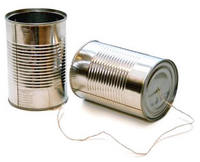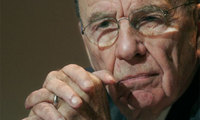 Back in 1995, an organization calling itself
AMERICA’S CARRIERS TELECOMMUNICATION ASSOCIATION (“ACTA”),
petitioned the FCC to regulate Voice over IP (VoIP) services.
The gist of the matter was:
Back in 1995, an organization calling itself
AMERICA’S CARRIERS TELECOMMUNICATION ASSOCIATION (“ACTA”),
petitioned the FCC to regulate Voice over IP (VoIP) services.
The gist of the matter was:
Permitting long distance service to be given away is not in the public interest.In other words, if the telcos couldn’t make money off of it, nobody should.
A usually reliable source says:
The ACTA petition was the first time that the FCC confronted VoIP as a policy issue. The FCC, however, never acted on the ACTA petition, and ACTA, the moving party, no longer exists. The question presented by the ACTA petition was whether the FCC had regulatory authority to regulate VoIP Internet software used by individuals to do telephony with each other, with no service provider in the middle.It’s interesting that the same telcos that now rail against regulation were happy to try to use it back in 1995 when it suit their purposes.— VoIP: ACTA Petition, Cybertelecom
So ATCA failed to control VoIP via FCC regulation. But they can use volume charging to eliminate both VoIP and video they don’t provide themselves.
The duopoly’s claims of a few people using too much traffic are a smokescreen. The real issue is control: they want to control what passes through “their” networks so they can profit by as much of it as possible. I have no objection to telcos and cablecos making a profit. I do object to them squelching everybody else to do so. On the Internet you can connect any two tin cans, unless the duopoly can cut your string.
-jsq






